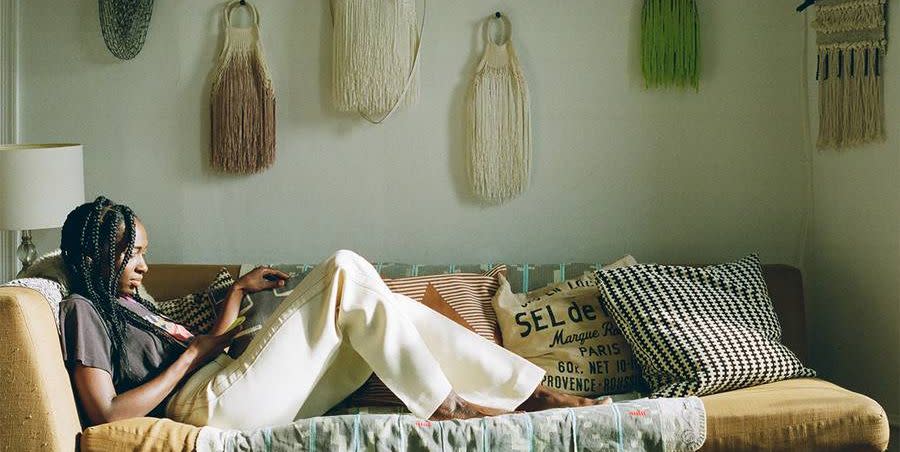Petit Kouraj Is Inspired by Her Haitian Roots to Create a Truly Chic Handbag Collection

In fashion, oftentimes the story behind a piece is as intriguing as the design itself. Apart from offering context, understanding the full picture undoubtedly makes one appreciate the end result that much more. This is certainly true when it comes to the many colorful fringed bags of luxury brand Petit Kouraj.
Playful by design, each style is made entirely by hand to be equal parts lively and chic—and completely unique. Founded by Nasrin Jean-Baptiste, the brand’s coveted woven fringe bag, in particular, has a vacation quality and comes in an array of trend-proof colors.
A stylist at the time, the London-born designer had just returned from a trip to Haiti and was looking for a way to connect with her roots when the idea for Petit Kouraj—or “little courage” in Haitian Creole—was born. Today, the brand is revered for its selection of artisanal bags made entirely in her native country, a detail that was especially important to Jean-Baptiste upon getting started. “I launched my brand in 2018, and from the outset I knew that I wanted to produce in Haiti,” the U.K. native explains to BAZAAR.com. “Not only because it held deep meaning to produce in my ancestral home, but I also knew it would have a real-life significance for the people.”
Since its conception, the brand has put an emphasis on supporting local communities—partnering with women-led organization DOT to work closely with artisans to provide opportunities, education, and vocation training in Haiti. The Brooklyn-based designer is doing what she can to not only help individuals but support the overall economy as well. “I want more brands to feel encouraged and confident to produce in [places] like Haiti, especially countries that experience trauma, as these are the people that need it the most,” she says. “It’s important to facilitate a more diverse landscape for manufacturing.”
But what happens when the country that designers are producing in experiences political unrest? Jean-Baptiste doesn’t have all the answers, but what she does know is that it’s time to rally around the country, now more than ever. In the wake of the assassination of President Jovenel Moïse, she’s less worried about manufacturing and more so focused on what this means for the locals. “I’m pretty much resigned to the likelihood the artisans that make my bags will not be able to catch up the time lost when they return back to work,” she says. “This inevitably means delays in getting my wholesale partners their orders delivered on time. But what concerns me more are the long-term political and social effects.”
Despite the uncertainties surrounding Haiti’s current landscape, Jean-Baptiste is hopeful that with the help of more and more brands considering the country as a port for production, the community will begin to get back on its feet. “I think that Haiti has so much to offer in terms of manufacturing and their natural ability to create that I feel like it would be great if designers, like myself, were able to produce there but with more support,” she says.
You Might Also Like

